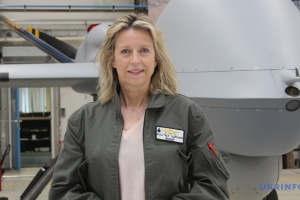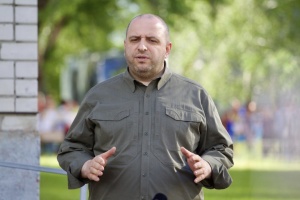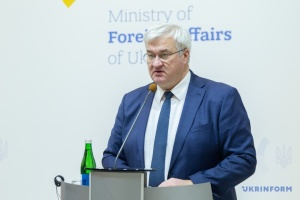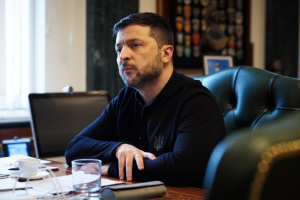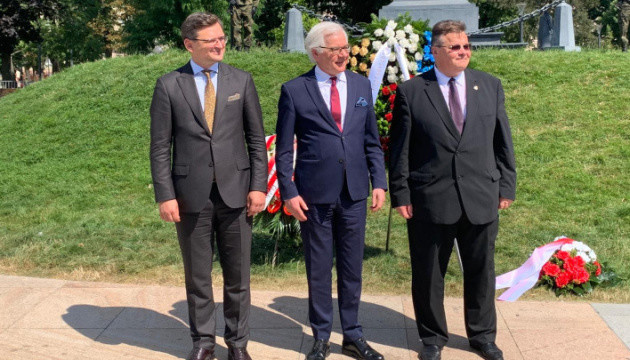
From Union of Lublin to Lublin Triangle
Dmytro Kuleba paid his first visit to Poland as Ukraine's foreign minister. The visit has every chance of going down in history thanks to the launch of a new political format - the "Lublin Triangle," which should be a platform for regular political consultations between representatives of Ukraine, Poland and Lithuania.
COMMON TASKS AND CHALLENGES
On the first day of his stay in Warsaw, Kuleba held talks with his Polish counterpart Jacek Czaputowicz, met with the Ukrainian community in Poland, and took part in the opening of a new building of the Ukrainian embassy, where the consular office is now located.

At a final press conference after the ministerial meeting, Czaputowicz stressed that he had finally met with the new Ukrainian minister in person after having only spoken on the phone three times so far. The presence of not only Polish and Ukrainian media at the conference meant that considerable attention was paid to the visit of the Ukrainian minister, and that all announcements would not go unnoticed by the European and world press. As expected, the Polish foreign minister stressed that Warsaw has consistently supported Ukraine on the international stage, condemned Russian aggression and will continue to provide political support to Kyiv in restoring its territorial integrity. For his part, Kuleba, thanking Poland for support, including through the EU and NATO, invited Warsaw to join the international platform for the de-occupation of Crimea. The Ukrainian minister also said there were currently no grounds to change their policy towards Russia. Pressure on Moscow, including through sanctions, must continue until the Russian Federation stops its aggression against Ukraine.
According to diplomatic sources, the Ukrainian minister asked his Polish and Lithuanian counterparts, with whom he met the next day in Lublin, to convey a key message to other EU foreign ministers: there can be no talk of the EU's "new policy" towards Russia until it takes real steps to stop aggression against Ukraine.
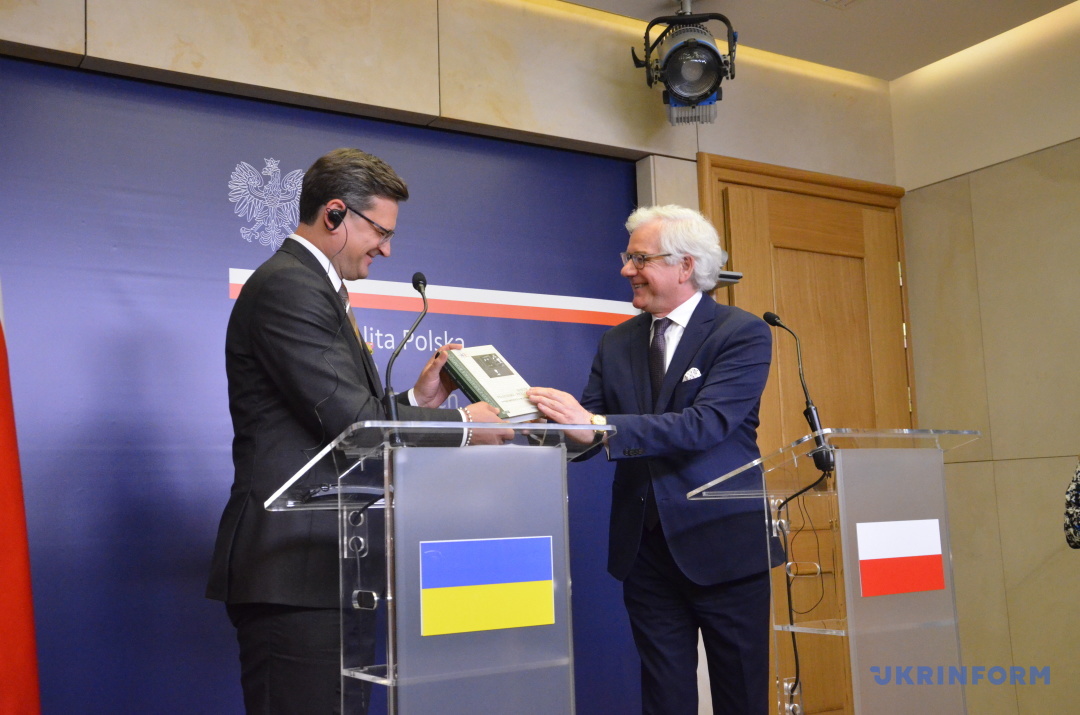
As expected, the ministers did not skip difficult conversations about common history. In general, the status quo remains in this issue: Poland asks Ukraine to grant permission for further search and exhumation works, in particular, at the burial sites of the victims of the tragic events in the Volyn region in 1943-1944. For its part, Ukraine is asking for a symbolic gesture to restore the memory of Ukrainians on Mount Monastyr, which has been desecrated twice by vandals in the last five years. Sixty-two UPA (Ukrainian Insurgent Army) soldiers who died in 1945 in a battle with NKVD units were buried at this site. It is worth noting that the Polish side considers this site of remembrance legal and promises to include it in the register of military burial sites under state protection. Kuleba noted that the Ukrainian side has already met Poland halfway, allowing Polish researchers to conduct excavation works at several sites and is waiting for a response "on the principle of reciprocity." However, history not only divides but also unites the two peoples, as the ministers mentioned in the context of this year's 100th anniversary of the alliance of Jozef Pilsudski and Symon Petliura and the Battle of Warsaw, in which Ukrainian People's Republic soldiers fought on the side of the Poles against the Bolsheviks.
Speaking about practical intergovernmental cooperation, Czaputowicz acknowledged that Polish Prime Minister Mateusz Morawiecki plans to visit Ukraine "in the near future." According to the Constitution of Poland, it is the head of government who has the greatest power and is responsible for implementing Poland's policy in various areas. Morawiecki has never been to Ukraine in almost three years as prime minister.
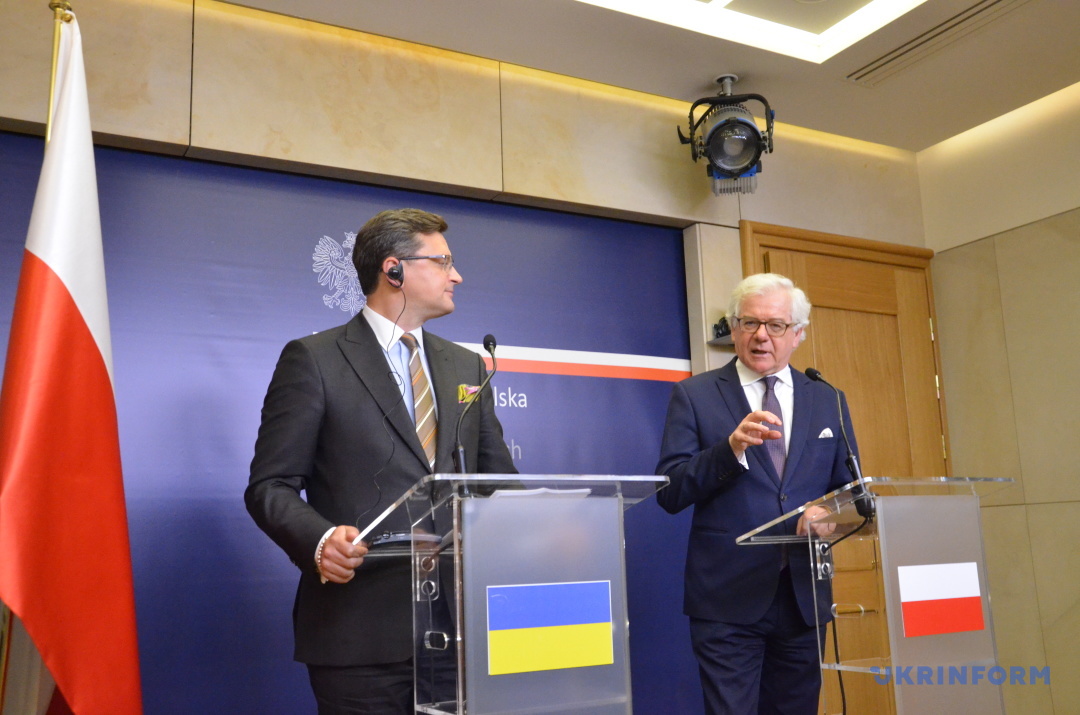
AMID A PANDEMIC
During the meeting with the Ukrainian community, Dmytro Kuleba spoke less and listened more. Obviously, he was interested to hear "firsthand" what problems Ukrainians face in Poland today. Representatives of the Ukrainian minority, who have lived in modern Poland for generations, stressed the need to preserve historical memory and culture. The new Ukrainian diaspora, which has been coming to Poland for the last 20 years, noted that the number of Ukrainian consulates in Poland needs to be increased, as the number of Ukrainians has increased significantly increased over the past five or six years but there is a lack of infrastructure for consular activities.

Kuleba said he was convinced that Ukraine now needs a "qualitatively new policy" towards Ukrainians abroad.
"The structure of the diaspora, the age of the diaspora and the geographical presence of the diaspora have changed significantly, and we need a fresh and deep look at how to support Ukrainians abroad," the minister said.
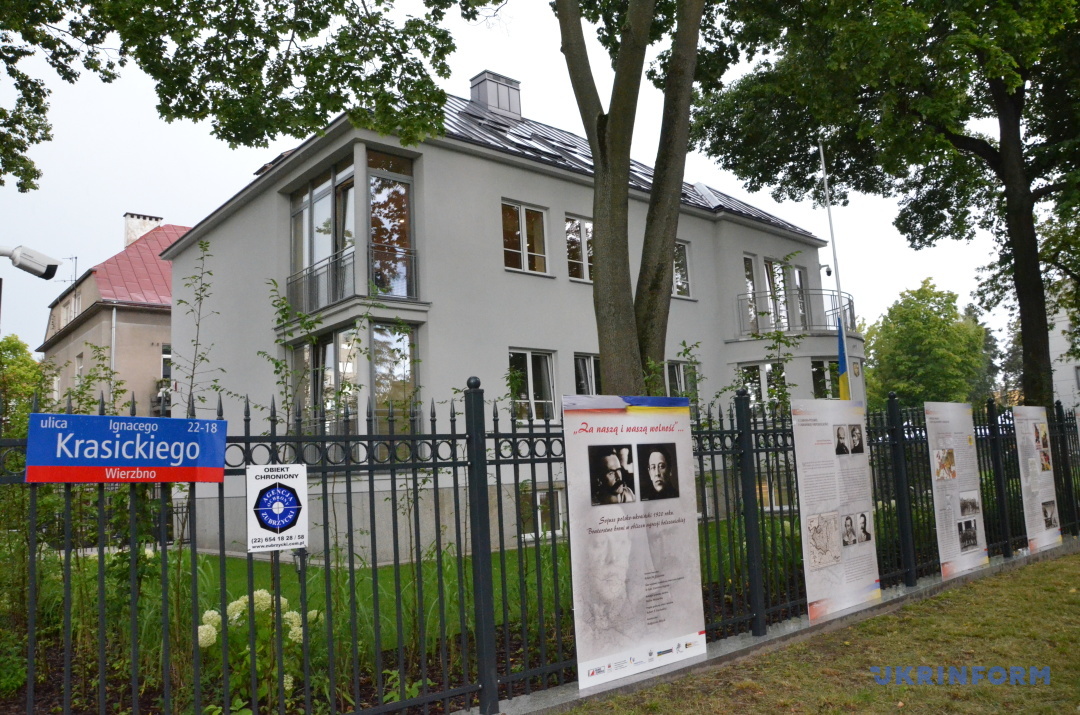

Kuleba and Czaputowicz then took part in the grand opening of a new building of the Embassy of Ukraine in Poland. The Ukrainian Foreign Ministry bought the building back in 2011, but a comprehensive repair was not carried out due to lack of funds. Last year, Ukrainian Ambassador Andrii Deshchytsia said that one of the main goals for him as ambassador was to open a new embassy building. During the opening ceremony for the consulate premises, Kuleba stressed that this modern building, built to European standards, reflects what Ukraine should look like.
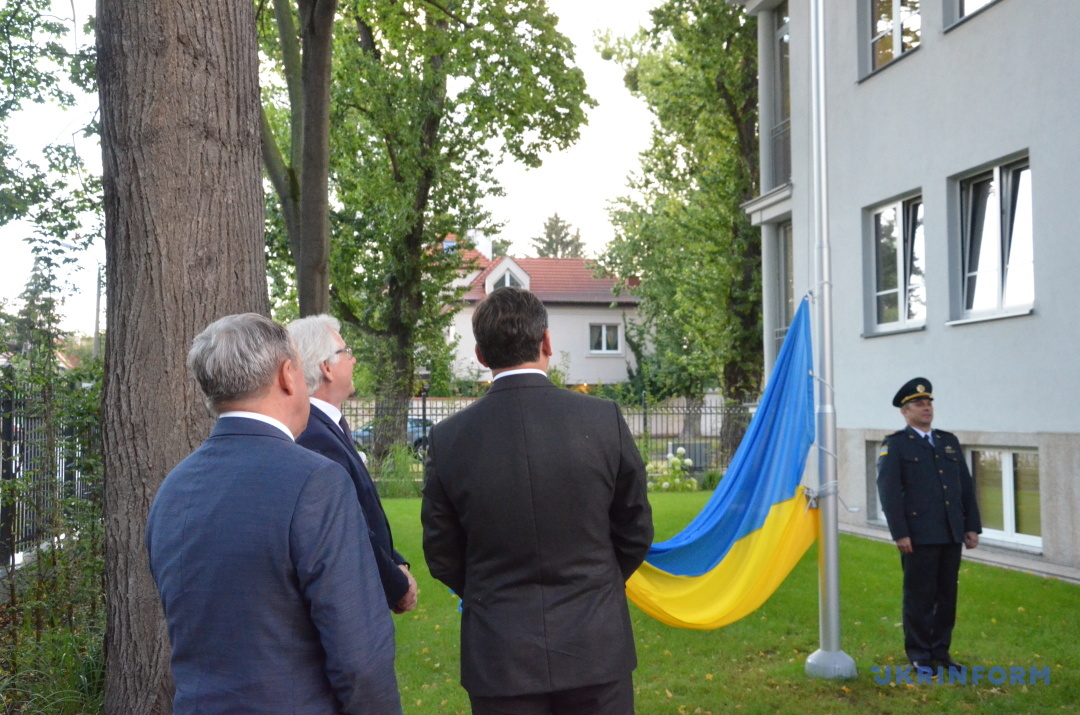
Behind the scenes of official speeches were talks between the two ministers on a possible easing of the coronavirus lockdown restrictions for Ukrainian citizens. Polish business associations and employers' organizations asked the Polish government to lift the 14-day quarantine or relax this requirement for Ukrainians. According to sources close to the negotiations, the Ukrainian side also raised this issue. The Polish Foreign Ministry promised to work with local epidemiologists to study the possibility of easing lockdown measures for Ukrainians.
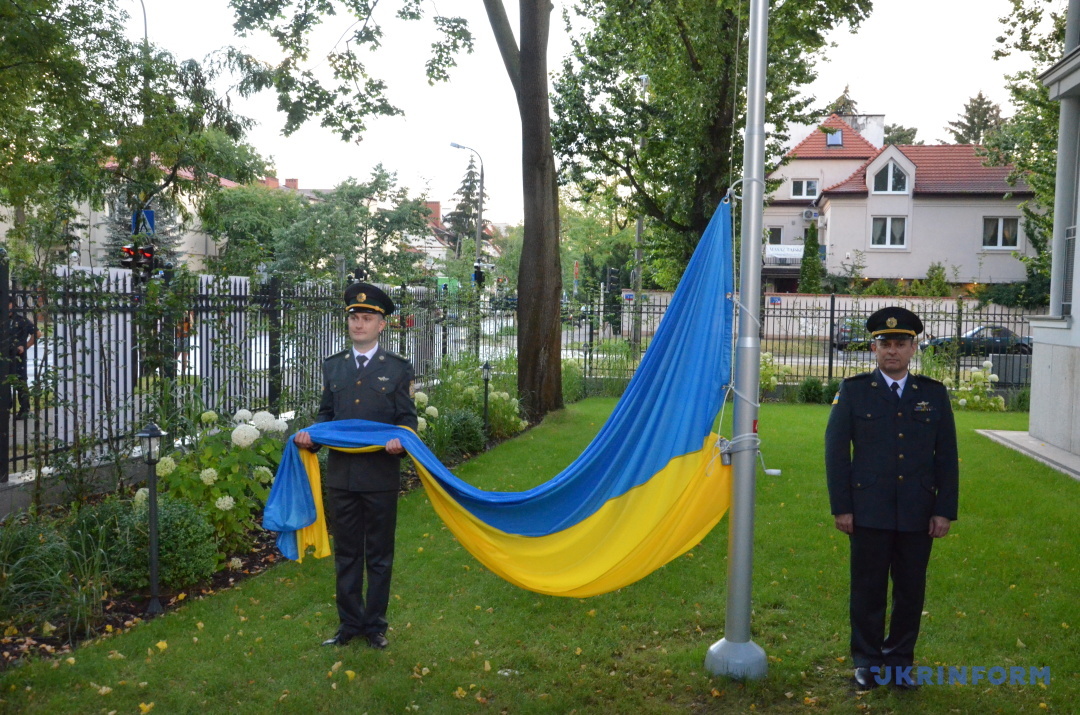
WITHIN A TRIANGLE
Lithuanian Foreign Minister Linas Linkevicius joined his Ukrainian and Polish counterparts during their visit to Lublin, a city located near the border with Ukraine. The meeting of the three ministers was not accidental: the headquarters of the international Lithuanian-Polish-Ukrainian Brigade (LitPolUkrBrig) has been operating in the city for five years. The ministers visited the brigade's headquarters, talked to the personnel and familiarized themselves with the preparation of servicemen for this year's Exercise Rapid Trident.
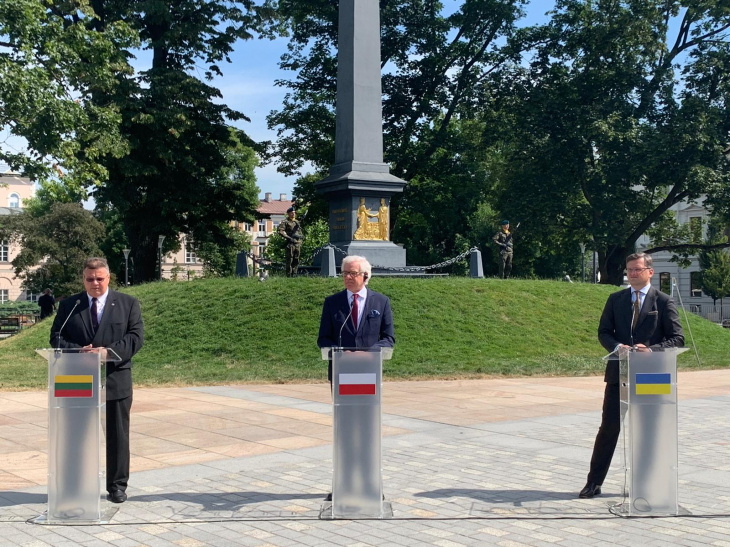
In the center of Lublin, the ministers announced the creation of a trilateral platform for political, economic and social cooperation between Ukraine, Poland and Lithuania - the "Lublin Triangle." This was symbolically announced near the monument to the Union of Lublin. The union was signed 451 years ago, on July 1, 1569. It was an agreement to unite the Kingdom of Poland and the Grand Duchy of Lithuania into a single federal state called "Rzeczpospolita." It then included a large part of the current territory of Ukraine.
Kuleba drew attention to the fact that the name "Ukraine" first appeared in cartographic sources just in the years of the signing of the Union of Lublin, on the map of Europe of the end of the 16th century, created by Tomasz Makowski. Referring to Harvard University professor Serhii Plokhii, Kuleba wrote on social media that the material for the Ukrainian part of the map had been obtained from the entourage of Prince Konstanty Ostrogski, who at the head of the joint Lithuanian-Polish-Russian army defeated an army of Vasili III near Orsha in 1514. LitPolUkrBrig now bears the name of Prince Konstanty Ostrogski, who actually put Ukraine on the European map.
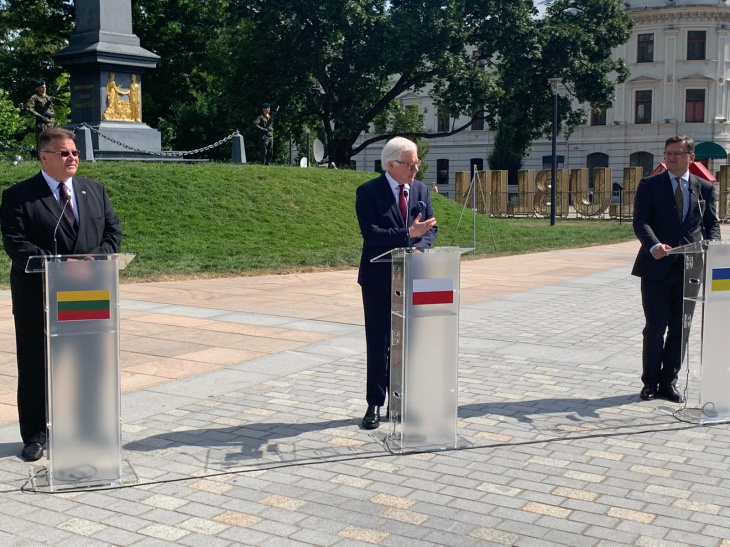
According to the plan, the "Lublin Triangle" Kyiv-Warsaw-Vilnius will not be a formalized union, but a political platform for trilateral consultations before important international meetings or the adoption of landmark decisions. It is a matter of agreeing on a common position on Russia, energy security in the region, including counteraction to the Nord Stream 2 project, economic cooperation and overcoming the COVID-19 pandemic. The parties agreed to create the posts of representatives on cooperation within the "triangle" and to hold a second meeting within this platform in Kyiv to discuss issues of Russian disinformation. According to diplomatic sources, Kuleba proposed preparing a regular report on trends and threats of Russian disinformation.
Kuleba, Czaputowicz and Linkevicius agreed on a cooperation mechanism in a joint declaration on the creation of the "Lublin Triangle." The document also condemns Russia's aggression in Ukraine, calls on Moscow to de-occupy Crimea and parts of the Donetsk and Luhansk regions, supports Ukraine's European choice and backs the granting of a NATO membership action plan to Kyiv with the prospect of joining the Alliance.
Yuriy Banakhevych, Warsaw
Photo credit by the author and the Ukrainian Foreign Ministry

